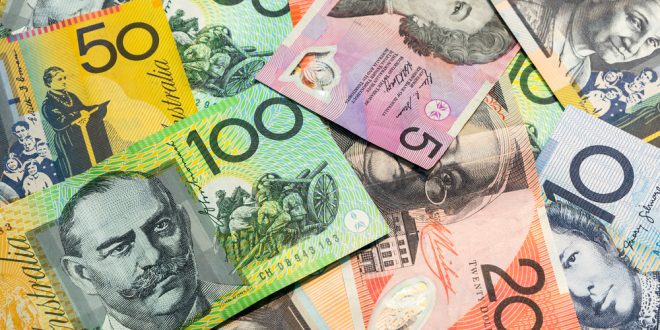The AUD/USD pair is gaining close to 1.50% on Thursday. The market sentiment is mixed, as Asian and European bourses closed negatively, while US equities are pairing Wednesday’s losses.
The AUD/USD is paring Wednesday’s losses and is sharply rallying, more than 1.40% on Thursday, despite a risk-off market mood, which would usually be a headwind for the major. At 0.7052, the AUD/USD reflects the ongoing US dollar weakness in the North American session, influenced by mixed US economic data and falling US Treasury yields.
The market sentiment is mixed, courtesy of weak US corporate earnings and high inflationary pressures, which affected big US retailers such as Walmart and Target, albeit US retail sales showed the resilience of consumers.
China is still under pressure, as provinces reported local Covid-19 flare-ups, increasing concerns of more lockdowns. Meanwhile, the Ukraine-Russia conflict looms even though it has taken the back seat.
In the Asian session, the Australian docket featured employment data, which showed that Full-Time Employment in April rose by 92.4K, beating expectations of 20K new jobs. Contrarily to that, is Part-Time figures, which collapsed -88.4K, lower than the 0.4K jobs estimated. However, compounding both statistics, the Aussie economy added 4K jobs, and it’s also worth noting that the Unemployment rate fell to 3.9% from 4.%.
Analysts at ANZ bank wrote in a note that “added to the disappointing wages data yesterday, this suggests a 25bp cash rate hike at the RBA’s June meeting is more likely than a supersized 40-50bp hike.”
The US economic docket also unveiled data. The Department of Labour reported that Initial Jobless Claims for the week ending on May 14 unexpectedly rose to 218K, higher than the 200K foreseen. At the same time, the Philadelphia Fed Manufacturing Index grew to 2.6, much lower than the 17.6 estimated, following the New York Fed’s Empire State index drop, which shrank to 11.6, painting a dismal US ISM figure for June.
Fed speakers continue to dominate the headlines. Earlier today, Kansas City Fed President Esther George said that the “rough week in the equity markets” does not alter her support of 50-bps hikes to cool inflation. She added, “right now, inflation is too high, and we will need to make a series of rate adjustments to bring that down.”
On Wednesday, Philadelphia’s Fed President Patrick Harker stated that the Fed “doesn’t want to overdo it” and commented that the US might have a few quarters of negative growth, but that is not what he is forecasting.
The AUD/USD remains downward biased, despite rallying and piercing the confluence of the May 11 high and the 20-day moving average (DMA) at 0.7051. Further reinforcing the aforementioned is that the Relative Strength Index (RSI), although pointing upwards, is in bearish territory, meaning that unless it crosses the 50-midline, that will open the door for additional buying pressure in the major.
Upwards, the AUD/USD’s first resistance would be the February 24 low-turned-resistance at 0.7094. Break above would expose May 6 daily high at 0.7135, followed by March 15 swing low at 0.7165. On the other hand, the AUD/USD’s first support would be the 20-DMA at 0.7050. A breach of the latter would expose essential support levels like the figure at 0.7000, followed by January 23 swing low at 0.6967 and then the YTD low at 0.6828.

 Noor Trends News, Technical Analysis, Educational Tools and Recommendations
Noor Trends News, Technical Analysis, Educational Tools and Recommendations




